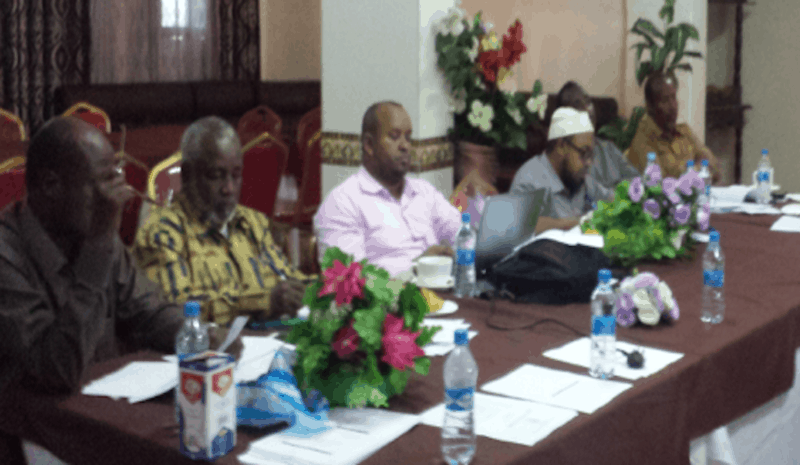Max Planck Foundation organises workshop on the topic of vertical division of powers
On 27 March 2016, the Max Planck Foundation organised a workshop for the Somali Boundaries and Federation Commission on the topic of vertical division of powers. The workshop is part of a series of knowledge building training and was attended by all nine members of the Boundaries and Federation Commission (BFC).
Although the Somali Provisional Constitution prescribes that Somalia is a federal country, the exact structure of the federal system remains largely unclear in the constitutional text. Notably, the Provisional Constitution provides for many powers, duties and responsibilities of the state yet does not detail to which level of government these powers are allocated. In light of this lacuna in the country’s primary law, the Max Planck Foundation’s Technical Adviser delivered a comprehensive analysis of the vertical division of powers in federal systems from a comparative perspective to the members of the BFC.
The workshop examined distinctions between federal models which adopt a more separated – or dual – system with those that adopted a more cooperative system in which government at the federal level and member state level operate in a collaborative manner. Commissioners in the workshop analysed the Somali constitutional text to draw out drafters’ intentions concerning what form of federalism Somalia is to adopt. Comparative examples enabled the Commissioners to better contextualise the constitutional text and to discuss how federalism would operate in Somalia.
The workshop forms the seventh workshop delivered under the Foundation’s project “Support to the Federalisation Process”, with the support from the German Federal Foreign Office. The project supports key institutions in the Somali federalisation process through the provision of continuous legal assistance and capacity building.

